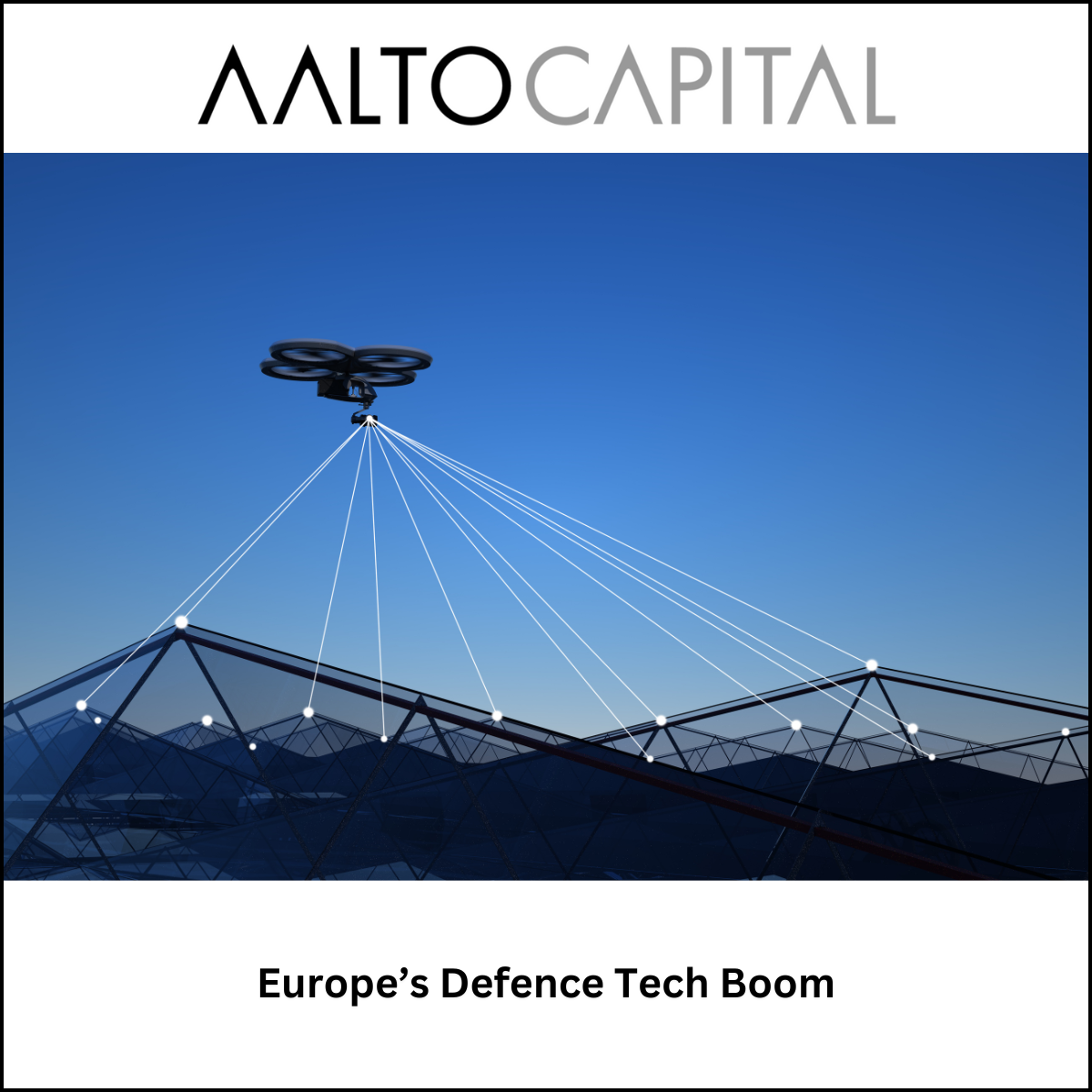Europe’s Defence Tech Boom

Defence is back as a top priority in Europe, with tech at the core. This allows investors to tap rising budgets and political backing. Those who align with Europe’s strategic goals and navigate the new rules can unlock long-term returns.
Russia’s war in Ukraine jolted Europe out of decades of defence complacency, sparking a surge in military spending and innovation. European defence budgets jumped approximately 17% last year to around $690 billion, and NATO allies set a goal of spending 5% of GDP on defence by 2035.
For investors, European defence tech has shifted from a taboo niche to a mainstream growth play. War-driven urgency and EU 'strategic autonomy' goals mean a major demand in funding for next-gen systems and a new openness to private capital. Defence stocks are hitting new highs, with 2024 sector VC funding jumping 24% despite overall VC funding shrinking. This suggests a resilient and potentially counter-cyclical thesis.
VC funding for European defence tech hit a record $5.2 billion in 2024, with approximately 10% of all VC funding on the continent. Defence M&A in Europe rose c. 35% in early 2025. Industry giants are snapping up startups (Safran’s $243M purchase of AI firm Preligens), and private investors are piling in.
There appear to be two driving forces: a geopolitical wake-up call and massive public investment.
The Ukraine war exposed critical gaps from air defence to ammunition following years of underinvestment. Now Europe is rearming, with Germany, Poland, the Nordics, and others sharply boosting budgets (Germany +28% in 2024) and scrambling for joint procurement.
To support this, many government-backed organisations have received significant funding. NATO’s DIANA accelerator and new €1 billion fund, the EU’s 'ReArm Europe' plan (c. €800 billion), and beefed-up European Defence Fund grants are funnelling capital into defence innovation. Nations across Europe are launching new incubators and funds, with even Switzerland now channelling over 7% of VC funding into defence startups.
To support and take advantage of the current environment, European investors have been focusing on a range of defence subsectors, such as:
- Dual-use emerging tech (AI, edge computing, quantum)
- Cybersecurity and cyber warfare
- Space (satellites, secure comms)
- Drones and autonomous systems (uncrewed vehicles, ISR)
- Supply chain resilience (ammunition, semiconductors)
- Quantum Technologies: computing, sensing (ultra-precise positioning, navigation and timing); communications (particularly those that are unhackable)
Policymakers are also amending rules to increase and incentivise investment. Brussels now treats ‘defence readiness’ as a plus in M&A reviews, and it has clarified that ESG criteria doesn’t bar defence investments. Additionally, new EU measures tie funding to European supply chains and relax deficit limits for defence, ensuring strong state backing but also a bias toward local industries.